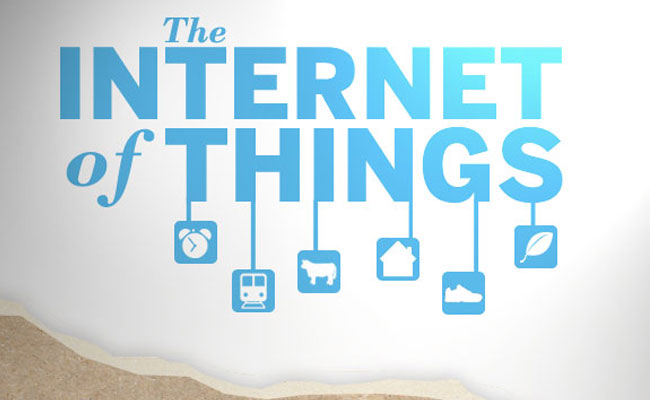Google’s 'Physical Web' Aims To Create An Internet Of Things Without Apps
The Internet of Things hasn't caught on in a major way yet, but it's bound to explode over the next decade, turning almost anything into a "smart device.” This could create too much complexity for regular people when it comes to interacting with the "smart" world around us -- especially if many IoT devices won't even interact with each other.
Right now, the popular approach to interacting with IoT devices is to have apps for everything. Smart sound systems, light bulbs, vending machines and so on all need different apps in order to work. What if no apps were required and the interaction between humans and machines was completely seamless and automatic?
This seems to be Google's vision for the "Physical Web" – a more seamless Internet of Things based on open standards, just as the real web works.
"People should be able to walk up to any smart device – a vending machine, a poster, a toy, a bus stop, a rental car – and not have to download an app first," Jenson explains on the Physical Web project page. "Everything should be just a tap away."
Google believes that not only will apps become too cumbersome to use for every single "smart" device around us, but having developers build native apps is overkill for the vast majority of these devices when a simple web address would suffice. Google enumerates some examples for how this would work:
- A bus stop tells you the next bus arrival
- Parking meters and vending machines all work the same way, letting you pay quickly and easily
- Any store, no matter how small, can offer an online experience when you walk in
- A ZipCar broadcasts a signup page, allowing you to immediately drive away
Google's Chrome team, the one spearheading this project, has already written some code for the Physical Web, but the whole project seems to be in a very early stage -- more like a proposal for how the Internet of Things could work than something we're going to see arrive tomorrow.
For this to get any momentum, many companies will have to get on board with the whole "open standards" idea. Apple has already started something similar (although in a less holistic way, and more purpose-built) within its own ecosystem through iBeacons, but it may not be too late to join the "Physical Web," as long as the company believes that would be in its own interest.
Get Tom's Hardware's best news and in-depth reviews, straight to your inbox.
Follow us @tomshardware, on Facebook and on Google+.
Lucian Armasu is a Contributing Writer for Tom's Hardware US. He covers software news and the issues surrounding privacy and security.
-
Thexder This seems to be similar to an idea I had a while back about using bluetooth, RFID, and/or NFC for home automation that was truly automated as in you walk up to the house, maybe enter password on your phone and the door unlocks, as you enter rooms the lights come on if the room is too dark, and if you star watching some TV or a movie or streaming some video or listening to music it would follow you around the house. Granted this would require you to keep your phone with you but I think it would be a good setup. I just never got around to trying to implement anything like that. Google's idea is a lot more widespread and I would love to see some standard interface for IoT like that so the consumer side is completely standardized. It does seem like something I read before about IoT devices basically pushing their own app or web interface rather than someone having to separately install an app on their phone or tablet to use the IoT device.Reply -
alextheblue ReplyThis seems to be similar to an idea I had a while back about using bluetooth, RFID, and/or NFC for home automation that was truly automated as in you walk up to the house, maybe enter password on your phone and the door unlocks, as you enter rooms the lights come on if the room is too dark, and if you star watching some TV or a movie or streaming some video or listening to music it would follow you around the house. Granted this would require you to keep your phone with you but I think it would be a good setup.
This sounds nothing like what Google is talking about. What you're discussing is definitely proprietary app territory, rather than deliberate web-based interaction with a smart device - especially devices away from your home, for which you may not have an app installed.
Anyway I can't help but think to myself... wasn't this really a no-brainer? Routers and other networked devices have been doing this for some time. -
jbeanfish I always thought the big push to apps for everything was kinda dumb in most cases. A web page is portable and plenty sufficient for most applications.Reply -
Matthew Pyne Pretty sure that would be an "intranet" of things not internet but ok. Everyone can just misuse terms if they want I guess -_-.Reply -
scolaner ReplyPretty sure that would be an "intranet" of things not internet but ok. Everyone can just misuse terms if they want I guess -_-.
Haha, interesting point...
